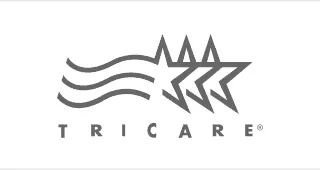What Is Individual Substance Abuse Counseling?
Individual substance abuse counseling is an effective treatment method for individuals dealing with mental health issues, such as, but not limited to, addiction. However, individual substance abuse counseling isn’t just for individuals who struggle with addiction. Individual counseling is also for those needing to confront issues in their lives.
Psychotherapy assists individuals in taking control of their lives and teaching them healthy coping skills for demanding circumstances. It helps with mental health disorders such as trauma, addiction, general emotional struggles, and other issues. Individual substance abuse counseling is also widely known as talk therapy. Talk therapy has various benefits for mental health.
A Safe Place During Treatment
One of the best aspects of individual counseling is it acts as a safe space for patients to open up about experiences and feelings with a trained professional. Generally, it’s a licensed mental health counselor or a psychologist.
A personalized approach occurs during individual sessions. Generally, talk therapy will consist of one-on-one, 45-minute to 60-minute sessions a week with a counselor. During the sessions, the patient can discuss whatever is concerning or bothering them.
Throughout addiction treatment, patients will learn how to cope with the behaviors and thoughts they’re experiencing. The therapy sessions can occur from a few short-term sessions a month to year long-term sessions.
How Can Individual Therapy Help?
Individual therapy helps:
- Recovering from physical, emotional, or sexual abuse
- Life transitions such as death, divorce, or career changes
- Eliminating or controlling disturbing symptoms
- Coping with everyday life
- An inability to sleep
During addiction treatment programs, individual therapy is in conjunction with medication. The psychologist and patient need to commit to attending sessions. During a weekly/daily therapy session, the patient can go through thoughts/feelings in an open and safe environment.
What Happens During Individual Substance Abuse Counseling?
In individual substance abuse counseling, a patient will confront traumatic and deep-rooted life situations that have led to drug and alcohol addiction. An individual’s mental health can play an essential role in an individual’s turn towards drugs. It’s common for many to have a dual diagnosis.
Addiction doesn’t start anywhere; it can take years to develop. When individuals encounter addiction, they might feel fearful or ashamed. As a result of that, individuals bury their emotions and turn to substance abuse for comfort. During sessions, thoughts/emotions are the focus.
The patient and psychologist will focus on the goal of therapy sessions and the amount. Patients are encouraged to speak to the therapist about virtually anything on their minds. For individuals moving away from repeated drug use, there will be more definite issues such as:
Environmental Factors
When a person resorts back to drinking or drug use, it can trigger old thought behaviors and patterns. This can include attending the same restaurant, bar, or neighborhood tied to addictive behaviors. Therapy helps a person discover coping mechanisms in an attempt to deal with such circumstances.
As there are different forms of anxiety, there are also a number of different signs and symptoms associated with the different forms. Most of the symptoms have the commonality of being unusual and of being unique specifically to the person with the anxiety. This is why when someone is having an anxiety attack, others have a difficult time trying to understand what they are going through.
Situational Stressors
Stress from relationships, family, work, and various other life situations can lead an individual to the desire to self-medicate. An advantage of the therapy is it helps discover more encouraging ways of dealing with stress.
Social Cues
It can be challenging to continue viewing friends who engage in drugs especially if they continue to do so. As a result, there can be pressure to join in again.
Individual Therapy Helps Address Co-Occurring Disorders
A person can experience a trigger in several aspects of life, from other people to objects. These triggers can set off a craving in a person or even mental distress. In therapy, patients will work on identifying triggers and learning how to avoid them.
For example, some triggers are unavoidable, such as running into a specific person on the street. However, individual counseling can teach individuals how to deal with triggers healthily. Also, individual therapy program will aid in relapse prevention.
When a patient attends a treatment facility, the first step is a medical detox administered by the clinical staff. During this part of treatment, the body is cleansed of harmful substances. From there, the patient is weaned off. After the physical dependence on drugs has vanished, there is still work to complete.
When this step occurs, aftercare comes into play. Aftercare includes various types of therapy options. The therapist will work with the patient to ensure abstinence from drugs.
Upon first walking into individual substance abuse counseling, a patient might struggle and find it stressful to confront challenging situations. They may begin to cry, feel anger, or become mentally exhausted. Gradually, however, the patient will learn how to open up to the therapist and feel comfortable in the sessions.
The therapist will become the patient’s trusted confidant. It’s important to note that addiction treatment services that include talk therapy are essential to recovery.
The safest way to deal with any kind of anxiety is to see a professional or a specialist about it. Treatment or therapy could be suggested that would bring the condition to the point where it is manageable and negligible to some extent.
People who either could not see a specialist for some reason, or prefer not to, often turn to what they think is the next best thing: substance dependence. Some people turn to medications or drugs, others prefer to use alcohol to dull the sense of fear, dread, or whatever intense emotion is debilitating to them when in the grip of anxiety.
This decision to turn to substance dependence is not only useless against anxiety, but it also creates another, potentially greater problem than all the troubles anxiety could do to a person: addiction.
Start Individual Therapy in New Jersey Today
Embark on a journey of personal growth and healing by accessing individual therapy in New Jersey today. Our dedicated and experienced therapists are committed to guiding you through challenges, fostering self-discovery, and providing a safe space for open expression. Whether you’re seeking support for mental health concerns, or addiction challenges, our tailored therapy sessions are designed to empower you with the tools and insights needed to navigate life’s complexities. Take the first step towards positive change and emotional well-being by embracing the transformative benefits of individual therapy. Contact our team today.
We work with most insurance companies. Please note we are not affiliated with or endorsed by insurance companies.
No Medicaid Accepted.


















